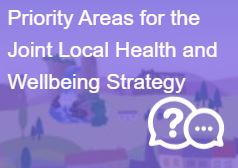 |
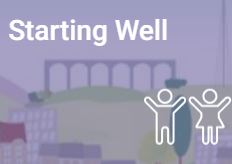 |
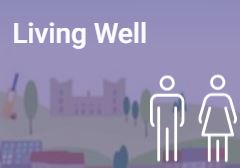 |
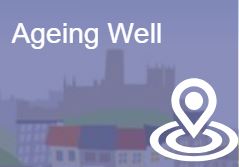 |
 |
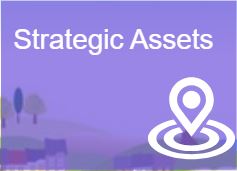 |
 |
|---|
Veterans/ Ex-armed Forces
A military veteran is defined as anyone who has served in the British Armed Forces for at least a day. This includes reservists. The British Armed Forces are made up of the Royal Navy, the Royal Marines, the British Army and the Royal Air Force. There are estimated to be 18,000 people across the country who transition back to civilian life each year.
Many service leavers make the transition into civilian life without issue and report good health and wellbeing. A very small number of service leavers struggle to reintegrate back into civilian life usually due to compounding factors including adverse childhood experiences, experience in the armed forces and circumstances in which they left the armed forces. As a result, a minority find themselves unemployed, homeless and potentially part of the criminal justice system.
Key messages
- The 2021 Census identified 22,615 veterans in County Durham. That’s the highest number across all North East Local Authorities. Almost 50% of veteran’s in County Durham are aged 65+.
- Veterans make up 5.2% of the 16+ population which is higher than England (3.8%) and the North East (5%). Proportionally the NE has the 2nd largest veteran’s population by region in England (5%), although the actual number is low in comparison to more populous regions.
- Veterans experience a variety physical health, mental health and social issues which affect their overall sense of wellbeing and do have unmet need
- 62% of County Durham veterans reported that they experienced good or very good health compared to 73% for non-veterans (Census 2021). In contrast, 13.2% of veterans in County Durham reported their health as being bad or very bad, compared to 8.7% of non-veterans.
- Veterans are more likely to have a disability that comes under the Equality Act than non-veterans. This is true both locally and nationally, with similar levels displayed in County Durham and England. In County Durham 34.4% of residents who have previously served in the armed forces have a disability that comes under the Equality Act, compared to 31.9% nationally.
- The older age distribution of veterans locally, combined with higher levels of disability and self-reported poor health could indicate a greater need for health and social care care and support.
Veterans data report
2022 ONS Veterans Survey
The Veterans’ Survey 2022 was the first survey of its kind in the UK and was a collaboration between the Office for National Statistics (ONS), The Office for Veterans’ Affairs (who funded the survey), and the devolved administrations. It aimed to understand the experiences of veterans and their families. In total there were 28,957 veteran respondents.
The first results of the survey were published on 4 December 2024, covering the health and wellbeing of veterans, then on 10 January 2025 covering finance and housing and then on 23 April 2025 concerning employment. Further analysis will be published throughout 2025 and key points from those subsequent releases will be added here upon publication.
Veterans’ Survey 2022: Health and wellbeing of UK armed forces veterans
- Just under half (48.7%) of veteran respondents were disabled (a much higher proportion than identified in Census 2021) and just under a third of veterans across the UK said they felt lonely always, often or some of the time (31.3%).
- Loneliness and disability status were associated and, among disabled veterans, 39.4% felt lonely always, often or some of the time, compared with 22.9% of veterans who were not disabled.
- Over three-quarters of veterans were registered with a dentist, and dentist registrations were associated with other health and wellbeing factors. Disabled veterans, and veterans who felt lonely always, often or some of the time, were less likely to have registered with a dentist than their counterparts.
The main reasons given by veterans for not registering with a dentist were “Because I found registering too difficult” and “Other”. Qualitative analysis of “Other” responses highlighted lack of NHS dentist availability, not being able to get a dentist in the local area and lengthy waiting lists to register with an NHS dentist as key themes.
Veterans’ Survey 2022: Finance and housing analysis of UK armed forces veterans
- Among UK veterans who provided their gross personal income, 5.8% said their income was less than £10,400 a year, 43.6% said their income was between £10,400 and £31,099 a year, 29.7% said their income was between £31,100 and £51,949 a year, 16.3% said their income was between £51,950 and £99,999, and the remaining 4.6% said their income was £100,000 a year or more.
- Disability has a known relationship with income, and when we consider those who were disabled, 7.9% said their income was £10,400 a year or less, compared with 3.7% of veterans that were not disabled.
- Just over half (50.1%) of veterans disagreed to some extent and nearly a third (30.5%) agreed to some extent with the statement “In the last month I have had money worries”. This aligns with comparable data sources that have reported on anxiety or worry around finances among UK adults.
- Around 1 in 400 (0.3%) veterans said they were homeless, rough sleeping or living in a refuge for domestic abuse, and 9 in 400 (2.3%) said they lived long-term with family or friends.
- Just over 1 in 10 (10.8%) veterans that were homeless or rough sleeping said they had received government support, such as from Veterans UK or local councils; just over 1 in 20 (5.7%) veterans that were homeless or rough sleeping said they had received support from charities, such as Citizens Advice, Shelter or SPACES, to help with housing.
Veterans’ Survey 2022: Employment analysis of UK armed forces veterans
- Of all survey respondents, across the UK, just under half (46.9%) of veterans were employed or self-employed and a similar proportion were retired (46.1%).
- Nearly two-thirds of working veterans worked in the private sector (62.0%), just under a third worked in the public sector (29.7%), 5.7% were working in the non-profit or non-governmental sector and the remainder did not provide their job sector.
- Just over 1 in 5 working veterans (20.9%) actively looked to change their main job in the last 4 weeks, most commonly because they wanted more pay or benefits, a better work-life balance or professional development.
- Across the UK, just over half of veterans (52.5%) had ever taken a job at a lower experience or skill level than their last role in the UK armed forces, most commonly because there were no other jobs available, and employers did not recognise their transferable military skills.
Over 8 in 10 veterans felt they had transferable skills from the UK armed forces (85.4%) or had used skills from the UK armed forces in a civilian role (81.4%), and just over half of veterans (53.5%) had given unpaid help to clubs, groups, charities or organisations over the last 12 months.
Assessments and audits
In 2023, a Health Needs Assessment (HNA) of military veterans / ex-armed forces was carried about by Durham County Council’s Public Health Team on behalf of County Durham Armed Forces Forum. A summary of which is available here:
Summary of the HNA of Military Veterans in County Durham (PDF; 148Kb)
The full HNA can be found here (please note links to external sites may not be fully accessible).
Our strategies, plans and groups
An Armed Forces Forum has been set up to encourage all partners within County Durham to work together to take positive measures to prevent any disadvantage to individuals as a result of military service. The forum involves representatives of the armed forces and organisations supporting ex-service personnel, as well as elected councillors and partner organisations.
In December 2021 we renewed our commitment to the Armed Forces Community by re-signing the Armed Forces Covenant which is a commitment to ensure that those who serve or have served, and their families, are treated fairly and are not disadvantaged in accessing public services as a result of their military service.
We will endeavour to uphold the key principles of the Armed Forces Covenant, which are:
- No member of the armed forces community should face disadvantage in the provision of public and commercial services compared to any other citizen.
- In some circumstances special consideration may be appropriate, especially for the injured or bereaved.
The evidence base
Post-traumatic stress disorder, NICE guideline [NG116]
